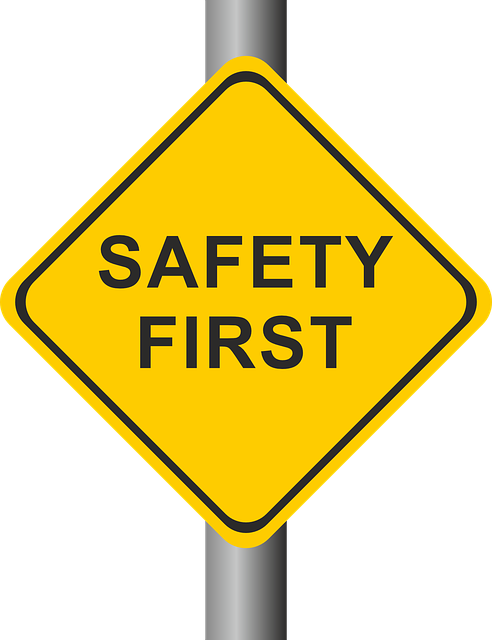Educational staff verification is a vital process to ensure safe and qualified professionals in schools. By thoroughly checking backgrounds, criminal records, employment, and education, institutions protect students, maintain integrity, and foster positive learning environments. This involves verifying credentials, licenses, references, and conducting criminal screenings to identify potential risks, ultimately promoting academic growth and building parental trust. Strict legal obligations and protocols are followed to confirm staff membership and ensure professionalism in educational roles. Advanced technology and databases enhance efficient verification, safeguarding the educational environment and community trust.
Background checks are an indispensable tool in ensuring qualified and safe educational professionals. In today’s digital era, thorough verification of educators is more critical than ever for maintaining school safety. This article delves into the importance of educational staff verification, exploring key aspects, legal obligations, and efficient strategies. By understanding these components, schools can enhance their hiring processes, safeguard students, and foster a positive learning environment. Effective background checks are a game-changer in shaping the future of education.
- Understanding Educational Staff Verification Importance
- Key Aspects of Background Checks for Educators
- Enhancing School Safety Through Comprehensive Verification
- Legal Obligations in Hiring Qualified Teachers
- Efficient Strategies for Staff Membership Confirmation
Understanding Educational Staff Verification Importance

Educational staff verification, or background checks, is a vital process that ensures qualified and safe professionals are working in schools and educational institutions. In today’s digital era, where information is readily accessible, it’s crucial to go beyond surface-level qualifications and credentials. Educational staff verification delves into an individual’s history, checking for any criminal records, past employment, education, and other relevant factors. This comprehensive approach safeguards students and fosters a safe learning environment.
By implementing robust educational staff verification processes, schools can mitigate potential risks, protect their students, and maintain the integrity of the educational system. It’s not just about finding the most qualified candidates; it’s about ensuring that those in charge of shaping young minds are reliable, trustworthy, and free from any potential threats. This meticulous screening is a game-changer in fostering a positive and secure learning atmosphere.
Key Aspects of Background Checks for Educators

Background checks are an indispensable component of ensuring qualified and safe educational professionals. These thorough investigations encompass several key aspects designed to verify the suitability of candidates for roles within academic settings. The process typically includes verifying employment history, checking references, and scrutinizing any criminal record or pending legal issues. Additionally, educational staff verification extends to evaluating educational qualifications, certifications, and professional development participation to confirm their expertise and up-to-date knowledge in their field.
A comprehensive background check also delves into potential red flags related to behavior, substance abuse history, and mental health concerns. This multifaceted approach aims to identify any risks or issues that may negatively impact the learning environment. By employing these verification methods, educational institutions can make informed decisions, prioritizing the safety and well-being of both students and staff while fostering a positive academic atmosphere conducive to learning and growth.
Enhancing School Safety Through Comprehensive Verification

Comprehensive educational staff verification is an indispensable tool in enhancing school safety. Background checks play a pivotal role in ensuring that qualified and trustworthy professionals are entrusted with the care and education of our children. By delving into their academic credentials, work history, and character references, schools can mitigate potential risks and foster a secure learning environment.
This meticulous process involves verifying certifications, licenses, and degrees to confirm the legitimacy of educators’ qualifications. Additionally, criminal background checks and reference interviews help uncover any red flags or concerning behaviors that may have been overlooked. Such proactive measures not only safeguard students but also build trust among parents and guardians, ensuring a harmonious educational experience.
Legal Obligations in Hiring Qualified Teachers

In many regions, hiring qualified teachers and educational staff comes with stringent legal obligations aimed at safeguarding students and ensuring quality education. Educational staff verification is a critical process that schools and institutions must adhere to before onboarding new faculty members. This involves comprehensive background checks, which include verifying credentials, checking for any criminal history, and assessing professional conduct. Compliance with these regulations not only protects learners but also upholds the integrity of the educational system.
Schools are typically required to follow strict protocols when hiring, such as conducting thorough reference checks, reviewing academic qualifications, and even obtaining permission to perform criminal background screenings. These measures are designed to identify potential risks and ensure that only competent, trustworthy individuals are placed in positions of responsibility within educational institutions. Effective educational staff verification processes contribute to a safer learning environment and foster a culture of professionalism among teachers.
Efficient Strategies for Staff Membership Confirmation

Efficient strategies for confirming staff membership and verifying qualifications are crucial in ensuring qualified educational professionals. One effective approach involves implementing robust background check procedures, which go beyond basic employment history verification. These checks include criminal record reviews, education and certification verifications, and references from previous employers or professional associations. By integrating advanced technology and digital platforms, educational institutions can streamline the process, enhancing accuracy and efficiency.
Additionally, utilizing specialized databases and cross-referencing with reputable sources ensures that the information obtained is up-to-date and reliable. Regular updates on staffing policies and adherence to legal requirements are essential. Implementing these strategies not only safeguards the integrity of the educational environment but also fosters trust among parents, students, and the wider community. Efficient staff membership confirmation processes contribute to creating a safe and qualified teaching workforce.






